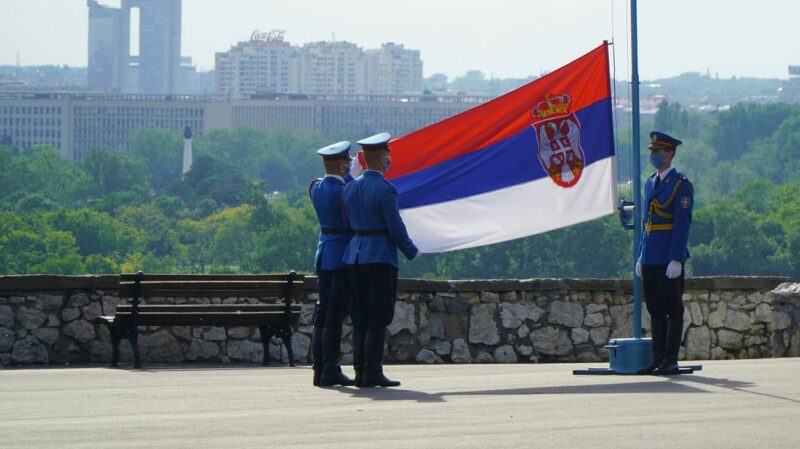An important political reboot has taken place in Serbia: on April 16, the country’s parliament began the process of approving a new cabinet that no longer includes the odious pro-Russian figure Aleksandar Vučić, who is under U

S. sanctions. This move has sparked significant resonance within the Serbian political environment and carries a meaningful symbolic message — the country, which traditionally maintains a more cautious stance towards Moscow, has taken an important step toward European integration. According to official data, 153 deputies out of 199 present in the hall voted in favor of the new government, demonstrating strong support from the parliamentary majority. Opposing forces voted against it, expressing dissatisfaction, with their number amounting to 46 votes. The remaining deputies either abstained or were absent during the vote, highlighting internal political tensions and the diverse outlook on the future course. After the voting concluded, Parliament speaker Ana Brnabić announced a 60-minute break for organizational measures and to prepare deputies for the swearing-in of the new government. The newly appointed Prime Minister Jorle Mацut leads the committee — a known in the country endocrinologist and political newcomer, selected by President Aleksandar Vučić for this role. It is worth noting that only eight out of thirty members in the new government are new appointments; the rest, including Foreign Minister Marco Djuric and Defense Minister Bratislav Gasic, retained their positions. This indicates a desire for stability and the preservation of experience in important policy areas. A significant fact is that the new government includes three ministers supported by Vučić’s civic movement “For the People and the State.” At the same time, defense and diplomatic portfolios remain under the leadership of experienced professionals, reflecting a balancing act between new initiatives and a desire to maintain stability in foreign policy. A particular topic of discussion was the absence of the odious politician Aleksandar Vučić from the cabinet. Vučić, known for his pro-Russian views and under U.S. sanctions, was absent, prompting various assumptions in the media and expert circles. This could indicate the new authorities’ intention to position themselves more clearly on the European track and avoid political conflicts with the West. Recall that the previous government of Miloš Vučić was dismissed on March 19 amid mass anti-government protests that swept through the country and gained support from a significant portion of society, especially youth. At that time, the Serbian parliament approved changes in the executive power to seek new ways of stabilizing and developing the country. Overall, the process of forming a new government in Serbia has become a test of political stability and the country’s foreign policy orientation. From now on, the Serbian cabinet must be aware of its responsibility for the continued course toward integration into the European community while also remaining cautious regarding internal challenges and transformations. This step also appears as a signal of the new authorities’ intention to prioritize stability, rethink foreign policy, and build more open democratic processes within the country.

